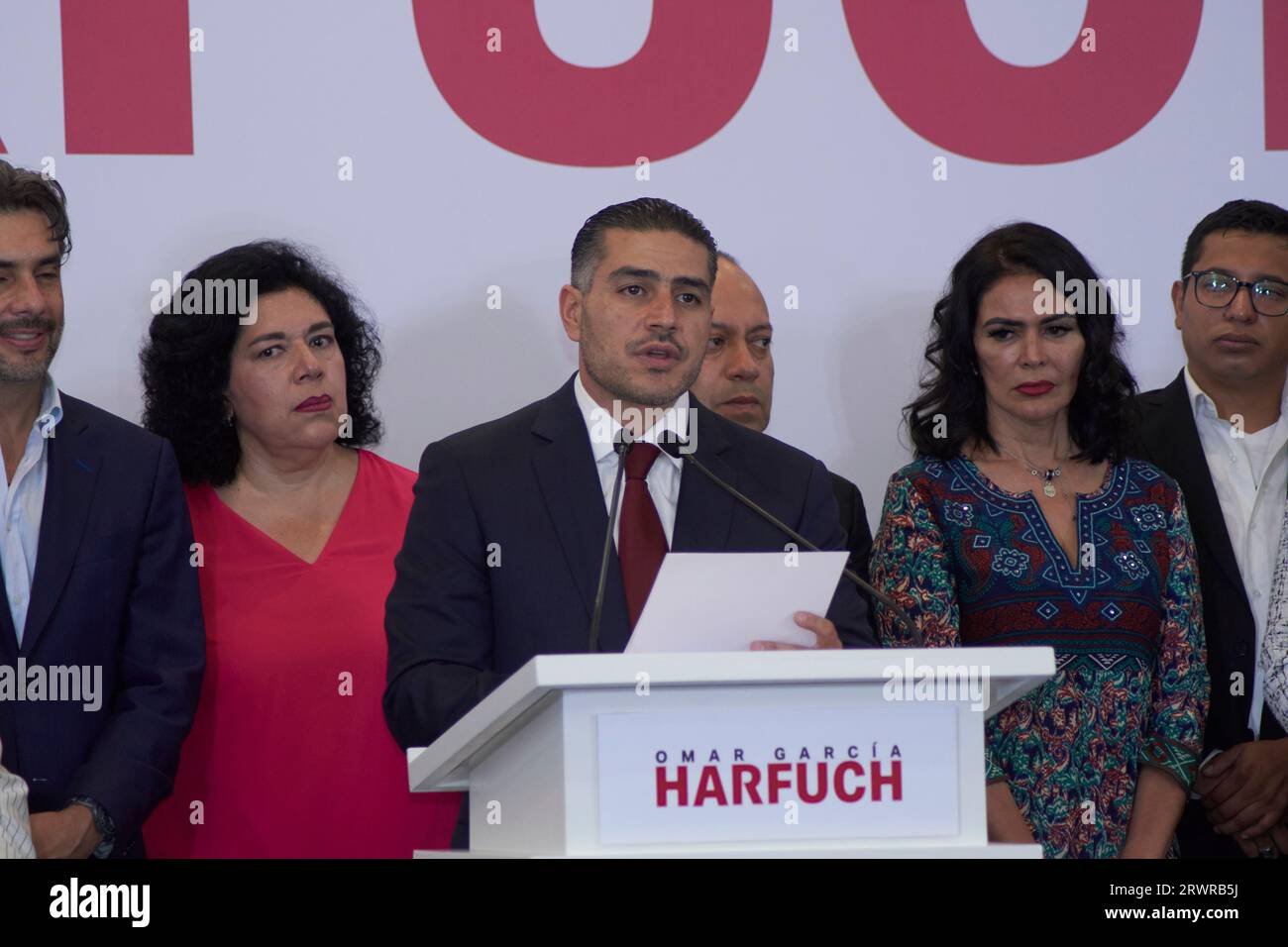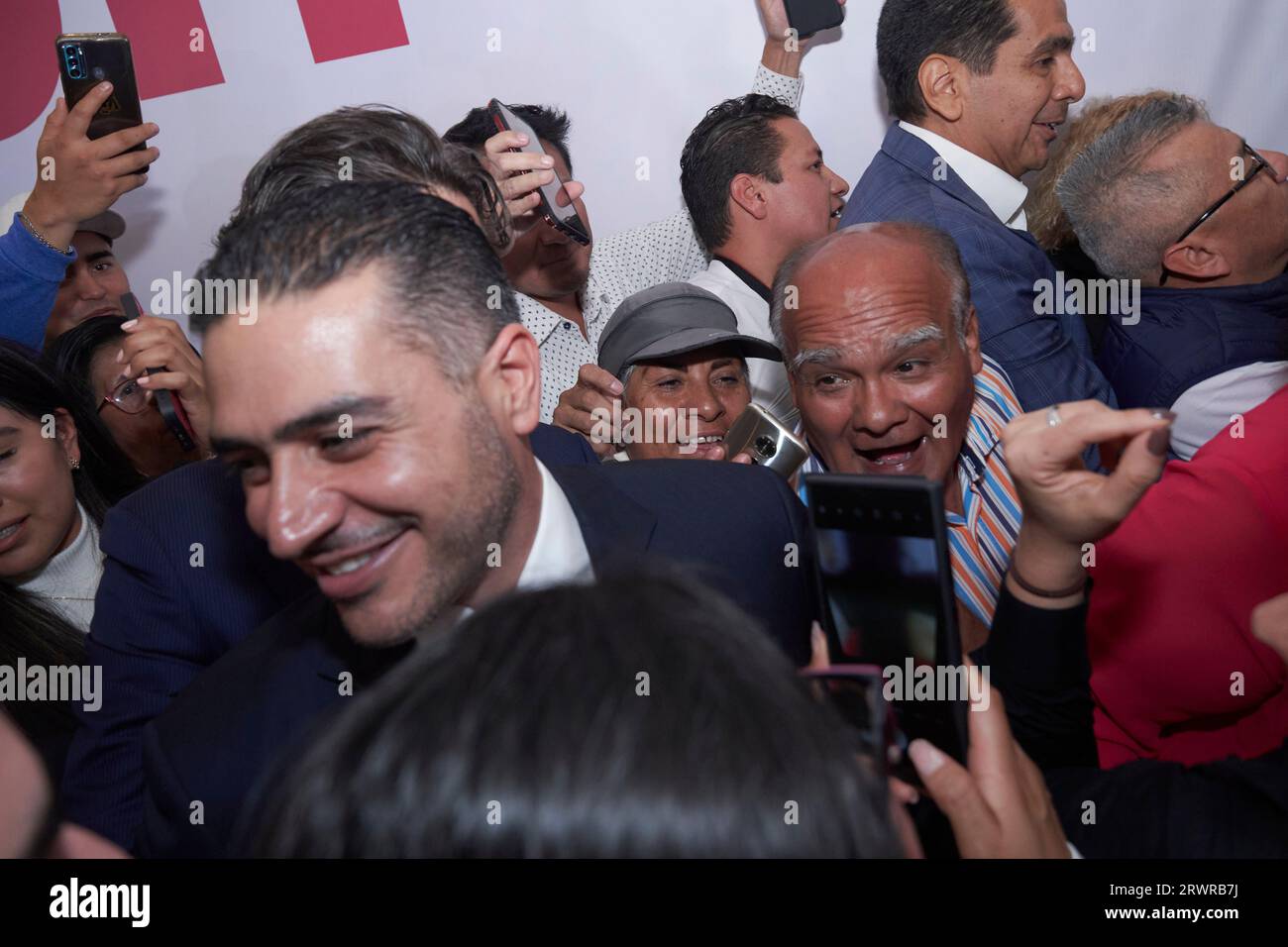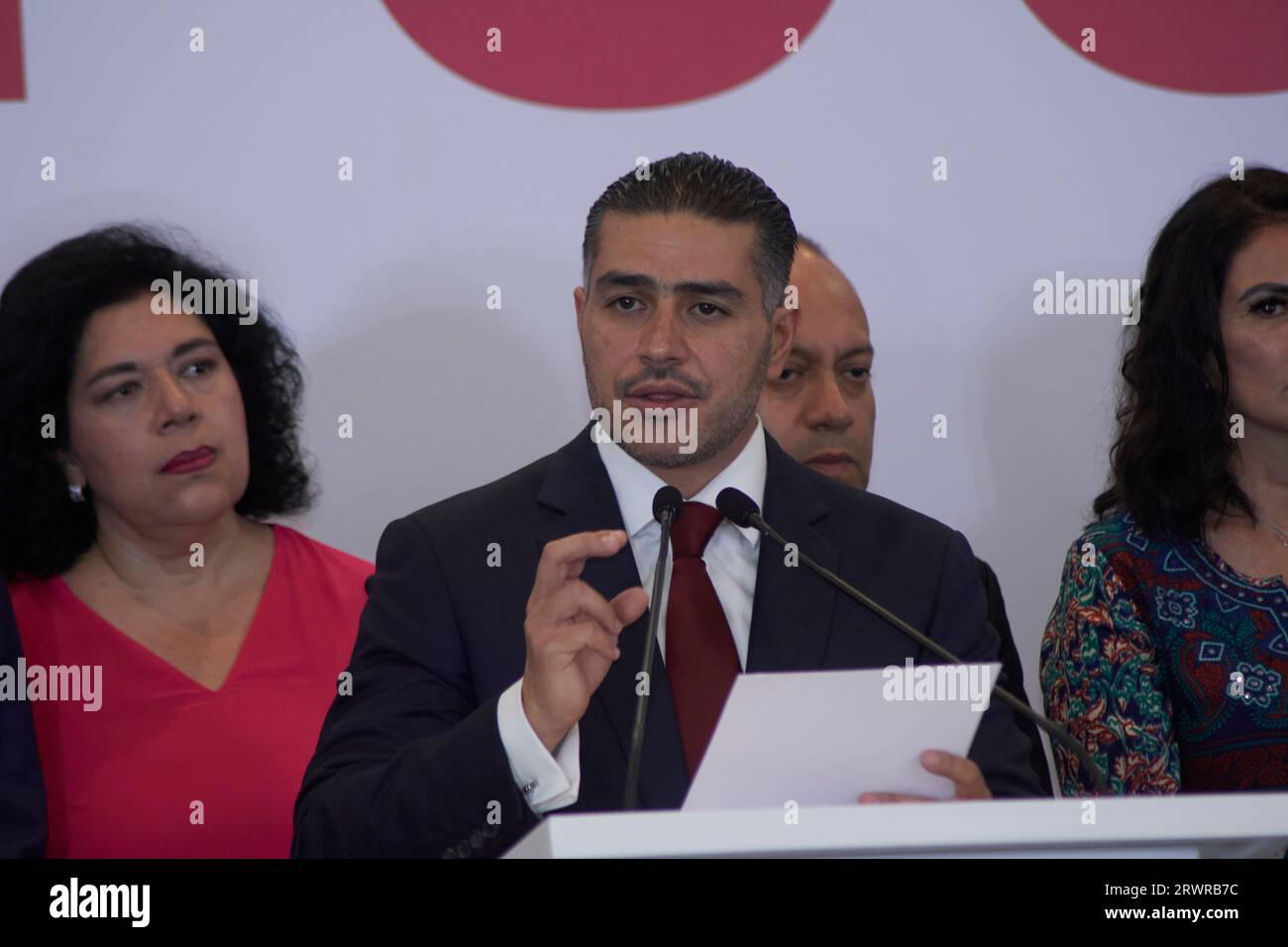Omar García Harfuch - Public Life And Personal Impact
In the realm of public service, individuals often find themselves facing a rather complex array of challenges and responsibilities. It's almost as if their very presence on the public stage brings with it a unique set of expectations and, well, scrutiny. Think about it for a moment: the weight of decisions, the constant spotlight, and the need to connect with a diverse population are just some of the things that come with such important roles. People who choose this path, you know, they really do step into a world where their actions and words have a ripple effect, reaching far beyond their immediate surroundings.
This kind of public engagement, in some respects, truly shapes how communities see themselves and how they move forward. When someone takes on a position of significant influence, their personal journey, their background, and even the simple meaning behind their name can become points of discussion and interest. It’s like, we often look to these figures not just for their policies or their official duties, but also for the stories they carry, the experiences that have molded them, and what those experiences might tell us about the broader human experience. So, it's about more than just the job; it's about the person and the narrative they bring.
It stands to reason, then, that someone like Omar García Harfuch, a name that resonates with a certain public presence, might prompt us to consider the broader implications of public service and the individuals who commit themselves to it. While we might not have all the details of his specific path right here, the very mention of such a name invites a conversation about the nature of leadership, the challenges faced by those in prominent positions, and how personal histories can, in a way, intersect with the collective story of a society. It's a chance to reflect on the lives that touch the public sphere.
Table of Contents
- A Public Figure's Journey - What Does it Really Entail?
- Understanding Personal Background - How Does It Shape Public Service?
- The Name "Omar" - What Meanings Does It Carry?
- Challenges in Public Safety - What are the Concerns?
- The Quest for Accountability - How Do We Hold Institutions Responsible?
- Supporting Rights - Is It a Lonely Path for Omar García Harfuch?
- Campaign Funding - What's the Story Behind Political Support?
- Community Reflections - What Can We Learn From These Experiences?
A Public Figure's Journey - What Does it Really Entail?
Stepping into the public eye, especially when serving in a representative capacity, brings with it a life that is, you know, constantly observed. Take, for instance, the experience of an American politician who has been a U.S. Representative for Minnesota's 5th congressional district since 2019. This person, born on October 4, 1982, has been part of a significant political party, which, you know, really means being at the center of many discussions and policy-making efforts. Their role involves representing a specific area, advocating for its residents, and contributing to national conversations, which is, honestly, a pretty big undertaking for anyone.
The path to such a position is often filled with personal stories that shape one's outlook and commitment. For some, this might include having to leave their home country as a child because of a civil conflict, spending a significant period, say, four years, in a temporary shelter for displaced people, before their family eventually found a safe haven in a new country. This kind of life experience, you know, really provides a deep well of understanding about the struggles many people face. It can, in a way, inform their approach to policies concerning immigration, human rights, and social welfare, making their public service more personal and, arguably, more impactful for those who have faced similar circumstances.
Such a background also means facing public discourse that can, at times, be quite intense. There have been instances where calls to remove a representative from office have been made, based on statements they were said to have uttered about their country of origin. Yet, legal experts have often stated that these sorts of appeals, you know, really have no legal standing. It highlights how public figures, even those with compelling personal histories, are often subjected to intense political debates and, perhaps, misinterpretations of their words. It’s a constant challenge to navigate the public narrative while staying true to one's convictions and duties, and that, in some respects, is a huge part of the job.
Understanding Personal Background - How Does It Shape Public Service?
A person's life story, particularly one marked by significant upheaval, can, you know, deeply influence their approach to public service. Consider someone who, as a child, was forced to flee their homeland due to a civil conflict. This kind of experience, like, really embeds a profound awareness of vulnerability and the importance of safety. Spending years in a place set up for those seeking refuge before finally gaining permanent residence in a new nation, it’s almost like, that whole process shapes a person's core values and their empathy for others in difficult situations. This kind of personal history can, in a way, become a powerful motivator for advocating for the rights and well-being of all people, especially those who are marginalized or displaced.
This personal journey also provides a unique lens through which to view societal issues. For instance, someone with such a background might be particularly attuned to discussions about the creation of a surveillance state, where, you know, masked individuals carrying weapons, dressed in everyday clothes, are reportedly taking people from the streets. This kind of concern, you know, about civil liberties and government overreach, might stem from a firsthand appreciation of freedom and the fragility of democratic institutions. It’s a perspective that, arguably, brings a different kind of urgency to conversations about justice and individual protections, making their voice, in some respects, a very important one in public discourse.
The ability to overcome such significant early life challenges can also speak volumes about a person's resilience and determination. When faced with the demanding world of politics, this kind of inner strength is, you know, pretty essential. It allows a public servant to persevere through tough campaigns and challenging legislative battles. This kind of personal fortitude, it’s like, really helps them to stay focused on their goals, even when the path seems difficult or when they face considerable opposition. It shows that their commitment to public service is rooted in a deep personal conviction, which is, honestly, quite inspiring.
| Detail | Information |
|---|---|
| Full Name | Ilhan Abdullahi Omar |
| Date of Birth | October 4, 1982 |
| Current Role | U.S. Representative for Minnesota's 5th Congressional District |
| Start of Service | 2019 |
| Childhood Experience | Fled Somalia's civil war as a child |
| Refugee Experience | Spent four years in a refugee camp |
| Asylum Granted | Received asylum in the United States |
The Name "Omar" - What Meanings Does It Carry?
It's fascinating, really, how a name can carry so much history and various interpretations, depending on its origins. The name "Omar," for instance, has a few different meanings that one might encounter. In its Germanic roots, the name "Omar" is said to convey the idea of being prosperous or having considerable possessions. This meaning, you know, really paints a picture of abundance and perhaps even a certain level of influence. It’s interesting to think about how such a meaning might subtly connect with individuals who find themselves in positions of public leadership, where they are, in a way, stewards of collective well-being and resources.
Beyond its Germanic origins, the name "Omar" also has significant presence in other cultures, particularly in Arabic-speaking regions, where it typically means "flourishing" or "long-lived." This interpretation, you know, really adds another layer to the name's depth, suggesting vitality and endurance. It’s almost as if the name itself carries a sense of resilience, which, arguably, is a quality that many public figures, including someone like Omar García Harfuch, must possess to navigate the demands of their roles. So, whether through prosperity or longevity, the name seems to hint at a capacity for significant impact and lasting presence.
Considering the various meanings, it’s clear that the name "Omar" is, in some respects, quite rich with positive connotations. For someone in public service, having a name that suggests prosperity or flourishing could, you know, potentially resonate with their aspirations for the communities they serve. It’s a subtle connection, perhaps, but one that adds a bit of intrigue to the person behind the public role. This exploration of names, like your own, really helps us appreciate the small details that make up the broader narrative of a public figure's identity and their connection to the wider world.
Challenges in Public Safety - What are the Concerns?
Discussions around public safety often bring up some pretty serious concerns about how law enforcement operates, especially when it comes to maintaining order and protecting civil liberties. There's a widely held view, for example, that we are, you know, in the middle of a process that could lead to the establishment of a system where the government has extensive control over its citizens. This perspective suggests that you might see individuals, like, masked, armed people dressed in regular clothes, reportedly taking others from the streets. This kind of situation, you know, really raises questions about due process and the rights of individuals in a society that values freedom.
These worries are not just abstract; they often come from real-world observations and experiences. When reports surface about such incidents, it can, in a way, create a sense of unease among the public. People start to wonder about the boundaries of authority and the protections afforded to them under the law. It’s a very sensitive area, as the need for security must always be balanced with the preservation of personal freedoms. So, discussions around these matters are, honestly, quite vital for any healthy community, as they reflect on the core principles of justice and governance.
The concerns about public safety also extend to how protests and demonstrations are managed. There's a push to ensure that people can express their views without fear of excessive force or unwarranted intervention. This means looking at how law enforcement agencies handle crowds and whether their actions align with democratic values. It’s a constant negotiation between maintaining order and upholding the right to peaceful assembly, and that, in some respects, is a challenge that public figures like Omar García Harfuch, and others in similar roles, might well consider as part of their responsibilities to the community.
The Quest for Accountability - How Do We Hold Institutions Responsible?
Holding public institutions, especially those involved in law enforcement, responsible for their actions is, you know, a pretty important part of maintaining trust in a community. There have been instances where certain political groups have voted to express support for immigration and customs enforcement, for example, while at the same time, some representatives, like the one we've been discussing, have been keen to ensure that police are held answerable for any alleged missteps during public demonstrations. This shows a clear split in priorities, where some are focused on enforcement, and others are very much concerned with the rights of citizens and the conduct of those in power.
The effort to pass regulations that safeguard the freedoms of those participating in protests can, in a way, feel like a solitary endeavor within legislative bodies. It’s like, trying to get support for such measures on Capitol Hill can be quite challenging, as it often goes against established norms or faces opposition from various political factions. This struggle, you know, really highlights the difficulties in bringing about changes that prioritize citizen rights, especially when there are differing views on how to balance security with freedom of expression. It’s a testament to the perseverance required to push for what one believes is right, even when the odds seem stacked against them.
Sources familiar with law enforcement matters have, at times, indicated that certain prominent individuals were on lists related to various investigations or public discussions. These individuals might include state governors and state attorneys general. This kind of information, you know, really underscores the broad scope of public accountability and how it can touch upon many different levels of government and public service. It’s a reminder that scrutiny and the expectation of responsible conduct are, in some respects, pervasive throughout the public sphere, affecting everyone from elected officials to those in charge of maintaining order, including, perhaps, those involved in areas relevant to Omar García Harfuch's work.
Supporting Rights - Is It a Lonely Path for Omar García Harfuch?
When it comes to advocating for the rights of ordinary people, particularly those involved in public gatherings, it can, you know, sometimes feel like a very isolated effort in the halls of government. Imagine trying to introduce new rules or changes that protect people who are expressing their views, and finding that there's not a huge amount of support for it. This kind of push, like, to defend protesters' rights, can be a solitary struggle for someone in a legislative body. It speaks to the courage required to stand up for principles that might not be popular with everyone, or that challenge existing power structures.
This commitment to civil liberties is, in some respects, a defining characteristic for certain public figures. They might feel a deep responsibility to ensure that citizens can voice their concerns without fear of reprisal or undue force. It’s almost as if their own experiences, or their deep belief in democratic ideals, compel them to champion these causes, even when it means going against the prevailing sentiment. So, the path of a rights advocate, especially within a political system, can be, you know, quite demanding, requiring both conviction and resilience to keep pushing forward.
The very act of trying to pass laws to protect people's ability to speak out, it’s like, it highlights the ongoing tension between security measures and fundamental freedoms. For someone like Omar García Harfuch, who might be involved in areas related to public safety or governance, understanding and balancing these competing needs would be, you know, a very important part of their role. It's about finding ways to ensure that order is maintained, but not at the expense of the basic rights that define a free society. This balance is, honestly, a perpetual challenge for anyone in a position of public authority.
Campaign Funding - What's the Story Behind Political Support?
The way political campaigns receive financial support is, you know, a pretty important aspect of how elections are run and how public figures gain their positions. There’s a particular type of organization, often referred to as a "super PAC," which is a method for collecting an unlimited amount of money for political purposes. It’s a tool that allows for significant financial backing, and it has, arguably, changed the landscape of political funding quite a bit. However, some politicians choose a different route, preferring not to rely on these kinds of independent expenditure groups for their campaign financing.
One representative, for example, stated that they have never funded their campaign using such a group. This kind of choice, you know, really reflects a particular philosophy

Harfuch hi-res stock photography and images - Alamy

Harfuch hi-res stock photography and images - Alamy

Harfuch hi-res stock photography and images - Alamy